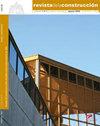全面质量管理(TQM)在马来西亚工业建筑系统(IBS)项目中的实施
IF 1.4
4区 工程技术
引用次数: 0
摘要
全面质量管理可以定义为旨在通过设计和改进组织系统和过程不断提高顾客满意度的管理方式的转变。采用工业化建筑体系是提高项目成功实施的关键。认识到TQM的优势并加以应用,可以大大提高项目的效率和绩效。通过对TQM的文献检索,确定了IBS建设项目TQM实施的现状和认识水平。本研究的目的是确定目前TQM在IBS项目中的实施状况,并从马来西亚建筑利益相关者的看法中确定其意识水平和潜在利益。这项研究采用了一种混合的方法,来自马来西亚各种建筑行业公共和私营部门的顾问、承包商、客户和学者都参与其中。本研究采用问卷调查法进行。共收集了371份问卷,样本量为265份。研究结果表明,大多数施工组织都不知道TQM方法。本研究得到的Cronbach’s Alpha系数为(0.934),表明问卷是可靠的。统计分析表明,提高效率、提高客户满意度、加强团队合作、提高盈利能力和提高安全性是参与者最关心的TQM利益。此外,本研究的结果为IBS建筑从业者提供了对在建筑部门实施TQM的组件的重要认识。本研究通过展示全面质量管理和项目绩效的能力来促进马来西亚建筑业的发展,从而有助于理解全面质量管理和项目绩效。此外,调查发现马来西亚建筑业没有达到高水平的质量实施方案。本文章由计算机程序翻译,如有差异,请以英文原文为准。
Implementation of total quality management (TQM) in malaysian industrialized building system (IBS) projects
Total Quality Management could be defined as a transformation in management style aimed at constantly increasing customer satisfaction via the design and improvement of organizational systems and processes. It is critical to use an industrialized building system to increase project successful implementation. Awareness of TQM advantages and its application could greatly improve project efficiency and performance. A literature search on TQM was done to determine the TQM implementation present state and level of awareness in IBS construction projects. The purpose of this study is to identify the current TQM implementation status in IBS projects and determine its level of awareness and potential benefits from the Malaysian construction stakeholders’ perception. A mixed approach was applied in this research with the participation of consultants, contractors, clients, and academicians from various construction industry public and private sectors in Malaysia. The questionnaire survey was used to conduct the study. A total of 371 questionnaires were collected, for a sample size of 265. The findings indicated that most construction organizations are unaware of the TQM approach. The Cronbach's Alpha coefficient achieved from the study was (0.934), indicating that the questionnaire was reliable. The statistical analysis revealed that increased efficiency, improved customer satisfaction, enhanced teamwork, increased profitability, and improved safety are the most essential TQM benefits that concerned the participants. Furthermore, the results of this study provide IBS construction practitioners with significant awareness of the components that empower TQM implementation in the construction sector. This study contributes to the understanding of TQM and project performance by demonstrating their capacity to enhance the Malaysian construction sector. Additionally, it was found that the Malaysian construction industry has not achieved a high level of quality implementation programs.
求助全文
通过发布文献求助,成功后即可免费获取论文全文。
去求助
来源期刊

Revista de la Construccion
工程技术-工程:土木
CiteScore
2.30
自引率
21.40%
发文量
0
期刊介绍:
The Journal of Construction is aimed at professionals, constructors, academics, researchers, companies, architects, engineers, and anyone who wishes to expand and update their knowledge about construction. We therefore invite all researchers, academics, and professionals to send their contributions for assessment and possible publication in this journal. The publications are free of publication charges.
OBJECTIVES
The objectives of the Journal of Construction are:
1. To disseminate new knowledge in all areas related to construction (Building, Civil Works, Materials, Business, Education, etc.).
2. To provide professionals in the area with material for discussion to refresh and update their knowledge.
3. To disseminate new applied technologies in construction nationally and internationally.
4. To provide national and foreign academics with an internationally endorsed medium in which to share their knowledge and debate the topics raised.
 求助内容:
求助内容: 应助结果提醒方式:
应助结果提醒方式:


